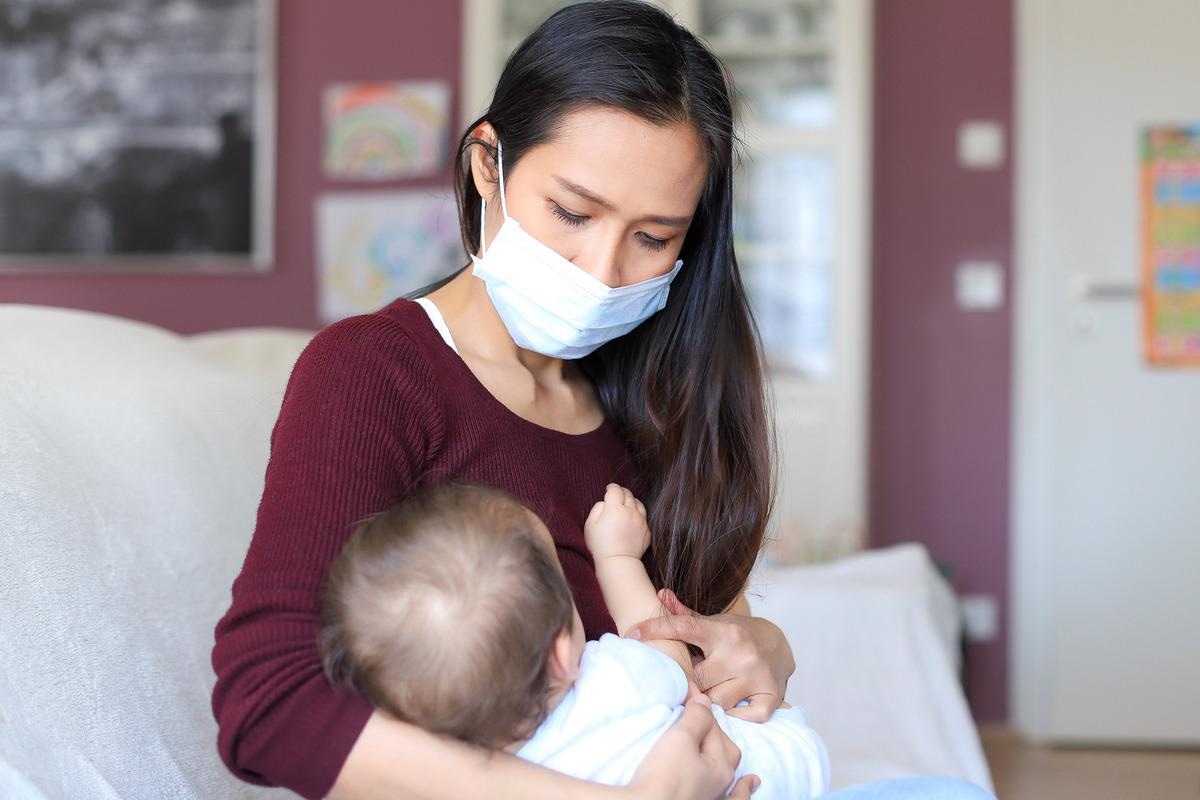In a study published in Frontiers in Pediatrics, researchers reviewed the ways to develop breastfeeding practices in the era of the coronavirus disease 2019 (COVID-19) pandemic.

Background
Breastfeeding and lactation have been affected by the COVID-19 pandemic globally, and early clinical practices during the pandemic mainly were anti-breastfeeding and non-evidence-based. Vertical transmission of severe acute respiratory syndrome coronavirus-2 (SARS-CoV-2) between mother and child was a particular concern. However, as the pandemic evolved and progressed, evidence reconfirmed the value of breastfeeding and human milk.
There was no evidence of vertical transmission of the virus through human milk during the 2003 SARS outbreak. Likewise, no active SARS-CoV-2 particles were detected in human milk, but a limited number of congenital COVID-19 infection has been recorded. Moreover, antibodies against SARS-CoV-2 have been detected in human milk and lactating women post-vaccination, changing our perception of the risk of breastfeeding for neonates.
In the current mini-review, researchers discussed ways to protect and develop practices and protocols to support breastfeeding during COVID-19. Several studies reported that breastfeeding support services were jeopardized due to hospital and public health policy changes during the COVID-19 pandemic. In the light of this, a comprehensive support-to-action roadmap for breastfeeding needs to be established with updated clinical practice considering the impediments caused by COVID-19.
Tailored support during the antenatal period
There is a growing concern that with the continuation of the pandemic, the quality-of-care standards might remain disrupted over time at the cost of practices supporting breastfeeding. Thus, healthcare providers must adapt to the dynamic changes of the pandemic in the context of rescuing and developing practices and protocols supporting breastfeeding. The researchers believed that the antenatal care period should be maximally utilized for providing tailored information on breastfeeding practices. Studies observed improved intention to breastfeed when standardized antenatal breastfeeding education programs were developed.
One systematic review noted that informal, needs-based education by a healthcare professional was effective in promoting breastfeeding initiation. Face-to-face peer support could deliver practical advice and emotional support. The COVID-19 pandemic has disrupted peer-to-peer interactions given the multiple episodes of national or local lockdowns, albeit telemedicine services have quickly addressed this.
Developing a comprehensive plan for breastfeeding is essential as it forms the juncture between maternal readiness and preparedness with respect to postpartum support. As such, risk factors of maternal lactation such as preterm birth, maternal obesity, gestational diabetes, primiparity, and cesarean section should be accounted for and included in the plan by healthcare providers. Managing these factors with practices that improve lactation initiation could increase the rate of milk usage at discharge.
Care and support during the postnatal and post-discharge period
Besides the improvements to antenatal education, both the health care professional and the mother must acknowledge that active management is required during the postnatal period to initiate lactation. Whereas evidence-based practices and protocols for lactation initiation and maintenance are well established, it is critical to adapt to these protocols amid institutional restrictions of COVID-19.
Some of the recommended steps to initiate lactation are affected by the reduced postpartum support for lactation and accelerated hospital discharges. It should be noted that the mother's suspected or known infection status does not necessarily mandate separating the infant from the mother. It should not preclude the practice of evidence-based protocols for lactation initiation, given the presence of anti-SARS-CoV-2 antibodies in milk produced by infected women.
Additional interventions for mothers with known risk factors for lactation initiation should also be viewed from the perspective of COVID-19 and addressed accordingly. For instance, breast pump usage to support lactation initiation has been well known, which should be considered within the framework of COVID-19. Protocols dedicated to facilitating the setup and cleaning of the pump should be established, along with procedures for storing and using collected milk.
In addition to in-hospital care practices, post-discharge care is also necessary, given the shortened discharge timeframes and reduced education and staff for lactation support. Therefore, new families should be comprehensively provided with information on available resources in the community. Telehealth services may be adopted to bridge the follow-up gap, acting as an around-the-clock support service. Nonetheless, specific post-discharge challenges could be addressed personally if warranted.
Conclusions
The authors suggested that parents-to-be may be educated on the importance of breastfeeding and lactation initiation during the antenatal period when they could better imbibe and process information.
Health care professionals must also ensure that backup plans or protocols are developed in advance, including for those mothers with lactation difficulties. They suggested that post-discharge support be remodeled, embracing new interaction modalities without compromising mental health and breastfeeding requirements. Overall, the measures discussed by the authors represent a more contemporary, adapted practice framework emphasizing the need to support breastfeeding and the use of human milk.
- van Goudoever, J. et al. (2022) "Updating Clinical Practices to Promote and Protect Human Milk and Breastfeeding in a COVID-19 Era". Frontiers in Pediatrics. doi: https://doi.org/10.3389/fped.2022.867540 https://www.frontiersin.org/articles/10.3389/fped.2022.867540/full
Posted in: Medical Science News | Medical Research News | Disease/Infection News
Tags: Antibodies, Breastfeeding, Cesarean Section, Coronavirus, Coronavirus Disease COVID-19, covid-19, Diabetes, Education, Gestational Diabetes, Health Care, Healthcare, Hospital, Mental Health, Obesity, Pandemic, Pediatrics, Public Health, Respiratory, SARS, SARS-CoV-2, Severe Acute Respiratory, Severe Acute Respiratory Syndrome, Syndrome, Telemedicine, Virus

Written by
Tarun Sai Lomte
Tarun is a writer based in Hyderabad, India. He has a Master’s degree in Biotechnology from the University of Hyderabad and is enthusiastic about scientific research. He enjoys reading research papers and literature reviews and is passionate about writing.
Source: Read Full Article
